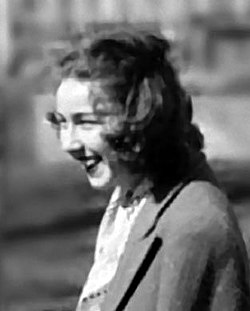Flannery O'Connor Quote
Related Quotes
A young child is a leader to an elderly person once his purpose has a faithful, sincere and trustworthy influence on people. Leadership is not restricted to position and age; it is self-made and influ...
Israelmore Ayivor
Tags:
a child, a young child, age, appoint, appointed, appointment, child, children, commander, elder
You can lead if you can serve. You can serve when you can love. You can love when you are graced. The truth is that God knows love will be needed in volumes, this is why he made his grace abundant. Le...
Israelmore Ayivor
Tags:
abundance, abundant, attitude, ballot, ballot paper, ballot papers, character, characters, clinton, election
About Flannery O'Connor
Mary Flannery O'Connor (March 25, 1925 – August 3, 1964) was an American novelist, short story writer, and essayist. She wrote two novels and 31 short stories, as well as a number of reviews and commentaries.
O'Connor was a Southern writer who often wrote in a sardonic Southern Gothic style. She relied heavily on regional settings and grotesque characters, often in violent situations. In her writing, an unsentimental acceptance or rejection of the limitations, imperfections or differences of these characters (whether attributed to disability, race, crime, religion or sanity) typically underpins the drama.
O'Connor's writing often reflects her Catholic faith, and frequently examines questions of morality and ethics. Her posthumously compiled Complete Stories won the 1972 U.S. National Book Award for Fiction and has been the subject of enduring praise.
O'Connor was a Southern writer who often wrote in a sardonic Southern Gothic style. She relied heavily on regional settings and grotesque characters, often in violent situations. In her writing, an unsentimental acceptance or rejection of the limitations, imperfections or differences of these characters (whether attributed to disability, race, crime, religion or sanity) typically underpins the drama.
O'Connor's writing often reflects her Catholic faith, and frequently examines questions of morality and ethics. Her posthumously compiled Complete Stories won the 1972 U.S. National Book Award for Fiction and has been the subject of enduring praise.
